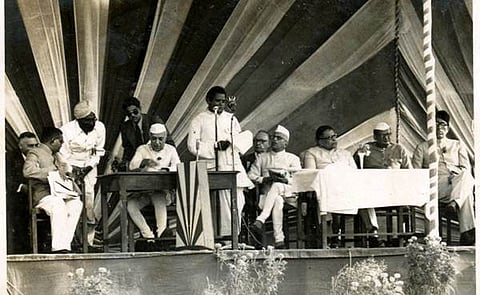My Japanese parents
In 1952, my parents, Pran and Soni Prashad, left Calcutta, India for Japan. They had been married for four years, and two children had already been born to them; two more would come later. Both my parents lost out on higher education – my father because his studies were interrupted by World War II, and my mother because she was married at 18. My father went to work at the Calcutta docks for a large British-Indian firm, Bird & Company. In the years after Indian Independence, my father's rise in the company was assured. He was a large personality who impressed people easily and whose ambitions were in line with what old firms in new countries needed. My mother supported those ambitions effortlessly, and with good humour. Their trip to Japan marked them, my father especially. Afterwards, his entire approach to life seemed driven by the desire to turn India into Japan.
Bird & Company had extensive interests in eastern India, from coalmines in Bihar to jute factories in the industrial belt that went up the Hooghly River north of Calcutta. From its offices in Dalhousie Square (today Kolkata's B B D Bagh) to its mode of operations, Bird & Company seemed to have resisted eviction from the 19th century. But my father was not a man who liked to look backward, and he was not particularly impressed by the traditions of the old English 'box-wallah' firms. He looked elsewhere for the future.

